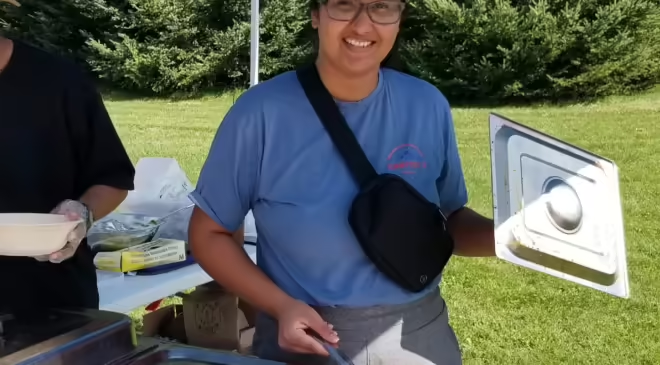Article content
With the opening of its 2024-25 season two weeks away, London Symphonia looks every bit like an ensemble ready to claim its place as one of the city’s cultural crown jewels.
The bankruptcy of its predecessor organization, almost a decade ago, is a nearly forgotten phantom. Through hard work, sacrifice and no small amount of re-imagination, London Symphonia has emerged as one of the country’s most innovative and successful orchestras.
Advertisement 2
Story continues below
Article content
Consider the evidence.
‘During the 2023-24 season, it sold out the 800-seat Metropolitan United Church twice: first on an opening night that featured Beethoven’s Ninth; the other a mid-winter Chopin concert with acclaimed pianist Janina Fialkowska.
Ticket sales on the season were up a remarkable 40 per cent over the previous year, according to executive director April Voth.
Unaudited financial results at the close of the 2023-24 campaign, on June 30, showed a surplus of around $12,000 on a budget of about $675,000.
Reliable funding from federal, provincial and local agencies, in addition to some important foundations, has been re-acquired. Locally, the London Arts Council has elevated London Symphonia to its community arts investment program and will provide stable funding of $75,000 annually during the next four years.
The Good Foundation recognized the orchestra’s achievements with a $50,000 grant, one of only five it doled out to mark its 50th anniversary.
London Symphonia’s education and outreach initiatives continue to expand, with the participation of about 4,000 students from local schools last year, open rehearsals and lectures for select students, and a series of “cushion concerts” hosted and paid for by London Public Library.
Advertisement 3
Story continues below
Article content
”M Relationships with Western University continue to grow. Five students in the music faculty win mentorships with London Symphonia musicians each year, while LS guest conductors sometimes make themselves available for master classes at the university.
Mind you, it’s still an orchestra dependent on sometimes-fickle audiences. Things can go wrong fairly quickly, should staff or the board take their ears and eyes off the metronome for two seconds (note the rather modest surplus, despite the solid income streams of the past year). But Symphonia has now built a track record of sustainable finances, astute management and artistic innovation that is bankable.
Two additional factors have contributed to that success.
The first is the introduction of high-quality audio-video capture that has permitted patrons to buy tickets for concerts via livestream. Despite that successful foray into technology and post-pandemic audience preferences, the orchestra is ending that service with the upcoming season. Instead, patrons may subscribe to video on demand, complete with 4K quality and post-production polish, to be made available the Friday after each concert for a period of 21 days. Time will tell if the service succeeds on its own, or maybe, drive more patrons to the live event.
Advertisement 4
Story continues below
Article content
The second is Symphonia’s ongoing relationship with Metropolitan United. Use of the church’s renovated space in the heart of the city as the orchestra’s primary venue is entering its third year. Both sides are pleased — the exception being the state of Met’s washroom facilities, still in the process of being expanded and improved.
“I try to keep my ear to the ground fairly closely and I really haven’t heard any negative comments [about the renovation],” said David Spencer, chair of Metropolitan’s board of elders.
“We’re really pleased and, frankly, proud of our relationship with London Symphonia…. It’s been a fairly good revenue generator for us as well.”
Metropolitan’s extensive renovations also have drawn the interest of other performance groups, eager to utilize the flexible space, audio-visual technology and acoustics.
London Symphonia’s upcoming season features eight concerts, including a performance of Handel’s Messiah with the Elora Singers in late November. In May, another first, on which arranger Scott Good is already working: an evening of country music, featuring London-born singer-songwriter Genevieve Fisher.
Advertisement 5
Story continues below
Article content
Voth doesn’t foresee a return to the days when a local orchestra employed full-time musicians and a conductor to perform dozens of concerts a year. Nor does Spencer expect Metropolitan’s regular Sunday morning services will ever again pack the building: “It’s not 1978 anymore, it just isn’t.”
But together, the two organizations have forged a special relationship. And what’s occurred here during the past 10 years is ample evidence the painful decision to start again from scratch — with bravery, commitment and extraordinary dedication — was the right move.
In other Canadian centres, such as Kitchener-Waterloo, arts lovers are taking note.
Larry Cornies is a London-based journalist. cornies@gmail.com
Article content






Comments